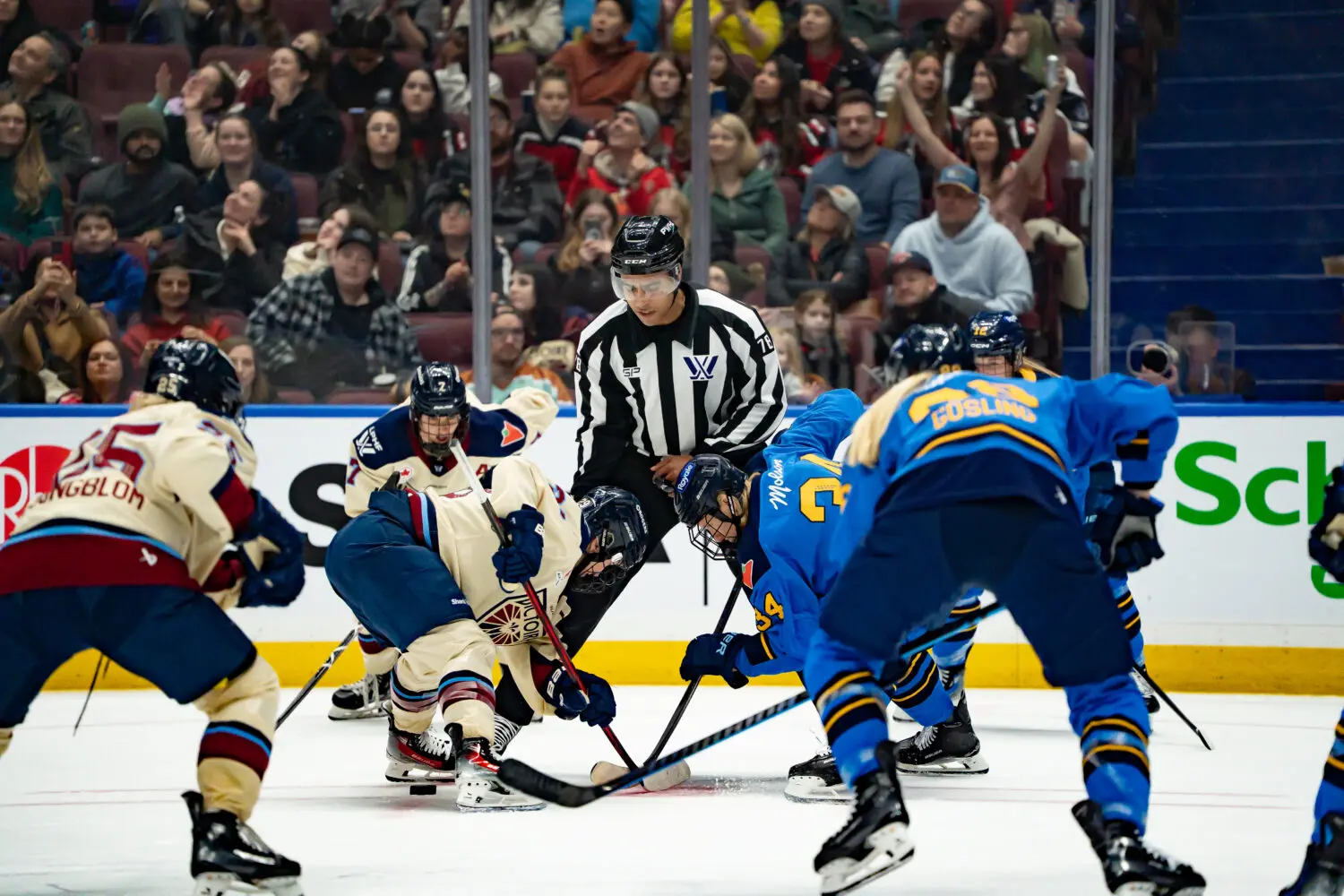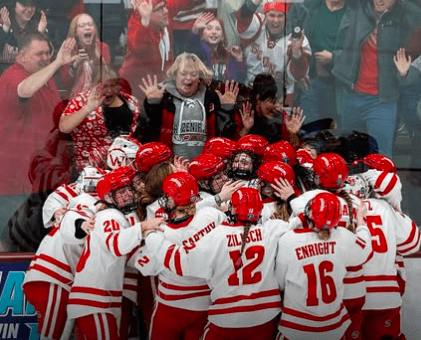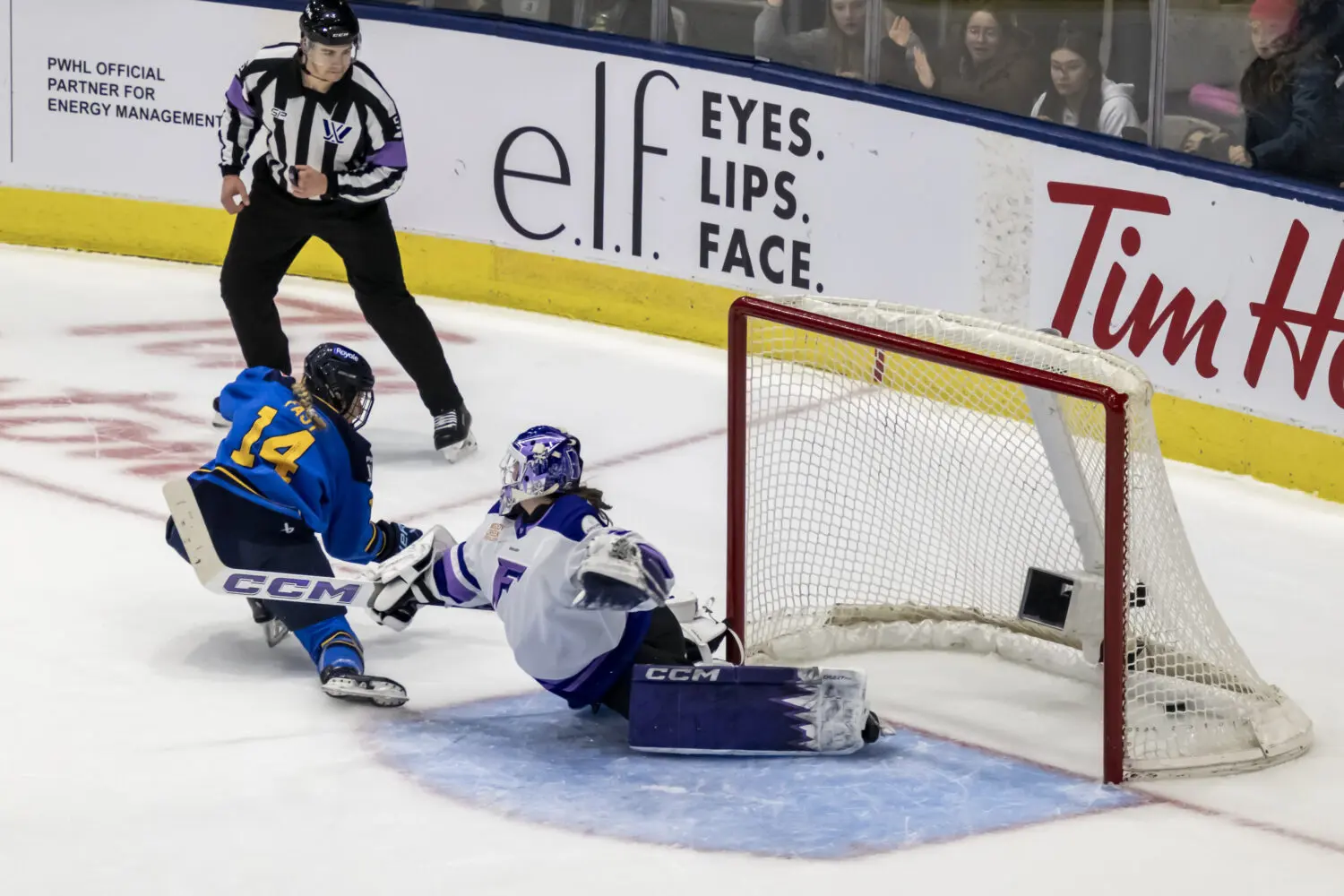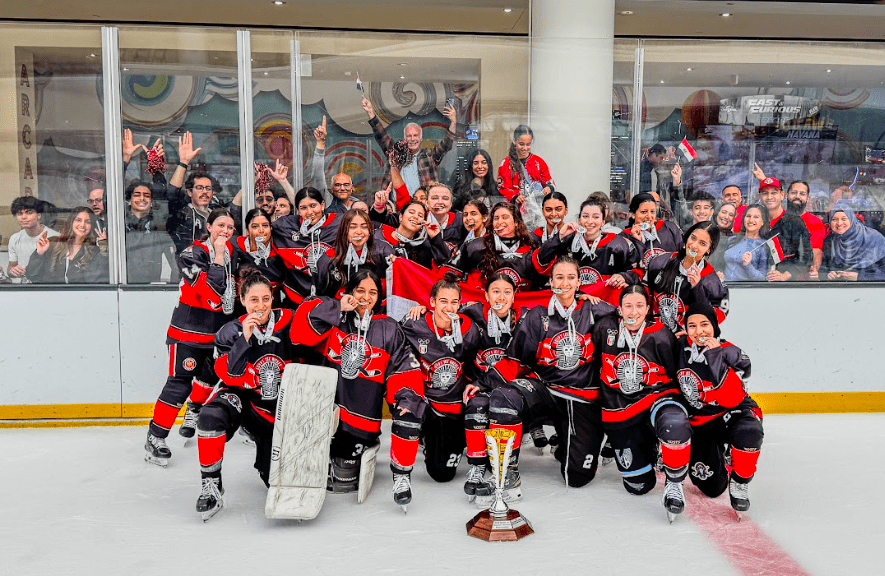Every year we come together on #BellLetsTalk Day to share stories of struggle, darkness, inspiration, encouragement, and hope. We all stand together to let each other know that struggling in silence isn’t your only option—speaking up about mental illness is okay.
While we need to be talking about mental health every day of the year and letting others know that we are all allies in the fight against the stigma on mental illness, we’re especially honoured to be able to share stories from the people around the hockey world today. We hope that you’ll find inspiration and hope in these stories, that you’ll share your own story, but above all else, we hope that you’ll realize that you are not alone in struggling with mental illness and it’s okay to speak up about it.
Liz Knox | Goalie | Markham Thunder | CWHL
“I genuinely think you would be hard pressed to find an elite athlete who hasn’t struggled in some capacity with their mental health. Whether in sport or in life, we are bred to put pressure on ourselves and to an extent believe that we are not good enough. It’s so important to ask for help in those times in whatever way possible and as teammates, check in on those around us when we feel something is “off”. You will not regret having the conversation.”
Anonymous | Goalie | 14 Years Old
“I started playing hockey when I was five and started playing goalie when I was nine. At the age of five I was diagnosed with high function autism. When I say “high function” it means I can function like a regular kid, not that the autism is high function, affecting me more—it affects me less.
When I was younger I didn’t know what it meant or what it was but as I grew older I gained more knowledge and I kind of outgrew it. If you saw me and then got to know me you would think I was a regular kid.
Hockey played a big role in that and it still does. Whenever I went to hockey I felt like a ‘regular’ kid. My hockey life has always been separate from my other lives, which helped because if I something happened at school or at home I could go to hockey and feel like a regular person not dealing with mental health issues and escape the struggles of the day.
Now I’m in grade eight, soon to be in high school, I have so much stress from school and my home life so when I go to hockey it is my escape from reality. I can forget all my stress and that I have autism. I also have became so self conscious because I’m bigger and stronger than lots of other girls, but when I go to hockey I fit in more because lots of us are bigger and stronger than lots of other people. I love how I can go to hockey and leave reality. Hockey has become therapy for me this year, because I feel accepted and loved and cared about because my team is so close.”
Jaclyn Hawkins | Founder & President of Women’s Hockey Life | Former NCAA D1 Player & Coach | Former SWHL & CWHL Player
“Yes, I had severe postpartum depression after giving birth to our twins. Yes, it was THE hardest thing I had ever gone through (silently) in my entire life. I never wanted to leave the house. I lost interest in the things I loved most. Self-doubt CRUSHED me. I literally couldn’t figure out how to survive any given day, let alone keep two tiny humans alive. I didn’t recognize who I had become. I wasn’t me.
This was the first time in my life where I wasn’t playing or coaching hockey. Hockey had always been my drug. The game always made me happy—even on the days we got bag skated. Hockey was my cure to anything life ever threw at me… and it was gone.
It took me 11 long months before I could “see the light”. That’s when I began to beat PPD. The game saved me when I chose to dive in head first with WHL. I was “back in the game”.
I can sit back and reflect on this now from a place of gratitude because that experience taught me that I am so much stronger than I ever knew. It reminded me of how important it is to carve out time every day to do the things you love. It changed my mentality and how I now run our company.
We don’t work 9-5, Monday to Friday or in an office together. Our team works remotely all over the world on their own time. Yes, we have scheduled meetings and events, but beyond that, we work after we’ve first taken care of ourselves. I believe that time spent on mental and physical health should be carved in to your workday. If we don’t first take care of ourselves, how can we then help others?”
Quinn Phillips | Sports Reporter/Anchor | Global Edmonton
“In the most recent years I’ve really had to fight anxiety because it did impact my job. I would lack confidence around the Oilers dressing room and even more so when I was about to go on air. I never thought that I would get something wrong, but I’d be nervous doing highlights and feeling short of breath. When you feel like you can’t breathe on live television let me tell you, it’s a pretty awful feeling.
Working out and looking after myself are obviously huge–sometimes you have to cancel your plans to look after yourself if you’re running off your feet with commitments. I’ve learned that it is very important that when I start to feel run down and stretched too thin it’s time to take a step back.
But the big thing for me has also been meditation. I use an app that guides me through all different types of meditation. Right now I’m on an 82 day streak but I want to stretch that to a year and beyond. It teaches you to slow your mind down and focus, I can’t talk more about the value of something that’s free and can take anywhere from one to 60 minutes in a day. No excuses, get meditating folks.”
Kyla Lane | Current Beer League Goalie | Editor-in-Chief & Director of Social Media for Women’s Hockey Life
“When I was four years old, my dad laced up my skates and taught me to love the game. A year later, he took his own life. Hockey has always been my way of connecting with him despite his absence, and now it’s a way for me to speak up so no other little girls have to grow up without a dad.
Mental illness took my dad from me when it won and I refuse to stay silent about it and let it keep winning. We need to speak up, today and every other day of the year, because silence lets mental illness win.
I’ve suffered from anxiety and depression for as long as I can remember. It’s affected every aspect of my life, but the one place I truly feel free from it is in the crease. When I’m playing the game I love (and the game that helps me stay close to my dad), surrounded by teammates that feel like family, I know I’m winning—even when the scoreboard says differently.
I couldn’t help my dad, but I can help myself and others who need it. I will always be an ally to those suffering from mental illness and I will never stay silent. The hockey community is a powerful force, and this especially rings true when we use it for good. Even when it feels like you have no one else, you’ll always have your hockey family—even the ones you don’t even know.
Be a fighter and/or an ally today, and every day. Speak up. Be brave. Ask for help. Don’t let mental illness win.”
Anonymous | Hockey Player | 13 Years Old
“I am currently 13 years old and I have been playing hockey in the boy’s league since I started playing hockey at five years old. Almost every single year I have struggled with anxiety and stress because I would be told I don’t belong there. I would be targeted by the sexist “jokes” and I would be told that I should go to the girl’s leagues, not only by the other teams but sometimes by my own teammates.
I know that I am good enough to play where I play, but it sometimes makes me sad that boys will never understand. I have realized that it helps to speak up, especially to the coaches and my parents and that I know that I am not alone.”
Maddy Millar | Former ACHA Player | Graphic Designer for Women’s Hockey Life
“Every year this day hits home for me. I’m incredibly thankful that mental health is becoming an important and legitimate conversation. Whether it be myself, a family member, or a dear friend, this day will always affect me and those close to me, and it helps tremendously to have support from more and more people every year. For those who have read my article about being a retired hockey player, I’m writing this article today to talk about the toll my mental health has taken since my career ended 10 months ago.
The first few months were very tough. I was doing everything I could to stay involved with the game, denying the fact that my time as a collegiate athlete was over. Mentally, I straight up just felt like a loser. I hadn’t ended my career the way I wanted to, and it was absolutely eating away at me. All of my friends were still on playing at my University, living the dream, and not having a single clue what it felt like to just not have the game anymore. There were days when all I wanted to do was be at the rink, and days that it hurt me too much to surround myself with hockey. Something that I loved SO much all of a sudden became a trigger of sadness for me. One of the worst parts of it all, and I’m sure a lot of other retired athletes can relate, is that I felt like I was finally starting to play my very best hockey after I graduated.
Now, almost a year after my last game, I’ve slowly started to accept that my career has ended. I still have really bad days sometimes and can’t be around the arena, and some days I’m filled with joy to go skate with my old team and reminisce on the good old days. To deal with the ups and downs, I’ve been volunteering my time to help promote the game in every way I can. Currently, I’m doing an internship with my college team, helping out with social media, graphic design, and basic game day tasks. It’s incredible to be on the other side of the game and it’s also taught me a lot about the effort, time, and passion that goes into the game of hockey.
Just because I can’t play like I used to, doesn’t mean I can’t love the game as much. I’m just in the works of teaching myself how to love it in a different way. I also have the amazing opportunity to write this today because of Women’s Hockey Life. I’ve been incredibly happy and humbled to volunteer my time for this organization not only with graphic design, but also reaching out and talking about this experience with all of the wonderful female hockey players, ex-players, coaches, families, and supporters of the game.
I’m sure you’re all wondering, does it get easier? The answer lies in YOU. If you stay involved with the game in any way you see fit, I can promise you it will be the best decision you make. In the meantime, it’s completely okay to not be okay. At the end of the day, this isn’t just about the game of hockey. It’s about mental health, taking care of yourself, and talking about what’s on your mind. Don’t be afraid to ask for help, voice your feelings, use the ones you love, and put your heart out there. Us as women are so hard on ourselves, and sometimes we just need a mental break. For those of you who know me or don’t know me, just know if you ever need anyone to talk to about anything at all, I’m always here. You are never alone and you never will be.
Thank you all for taking the time to read my story. I hope whoever needed to read this feels stronger today!”
Nahreman Issa | Anchor & Reporter
“Being in media is not for the thin-skinned.
You will be attacked for how you report a story, for how you sound and for how you look.
You can’t please everyone.
If you are a woman who covers sports, you will be judged harder than your male counterparts.
That used to be my beat for several years. I loved doing it, and was mostly respected by players, coaches, and strangers online.
But what I had to put up with by a small percentage is “Do you even know anything about sports?”.
The stigma being if there is a woman doing it, she’s just there to flirt with the players, or the station just threw a pretty face on camera just because.
Your mental health takes a beating in this job. You deal with crazy deadlines, you don’t eat properly, you’re rushing from one shoot to another, you’re constantly trying to think creatively while making sure all your information is correct.
If you’re in news, some of those topics could be absolutely horrific to cover.
What’s most important is that you have a support system, both at home and at work.
I find that talking with other media folks helps so much. We go through the same things and we understand the nature of the business.
Communication is key… and also having the confidence knowing you know more about sports than certain insecure idiots. *flips hair*”
[adrotate group=”1″]
Related Articles
Categories
Recent Posts
[adrotate group=”2″]










